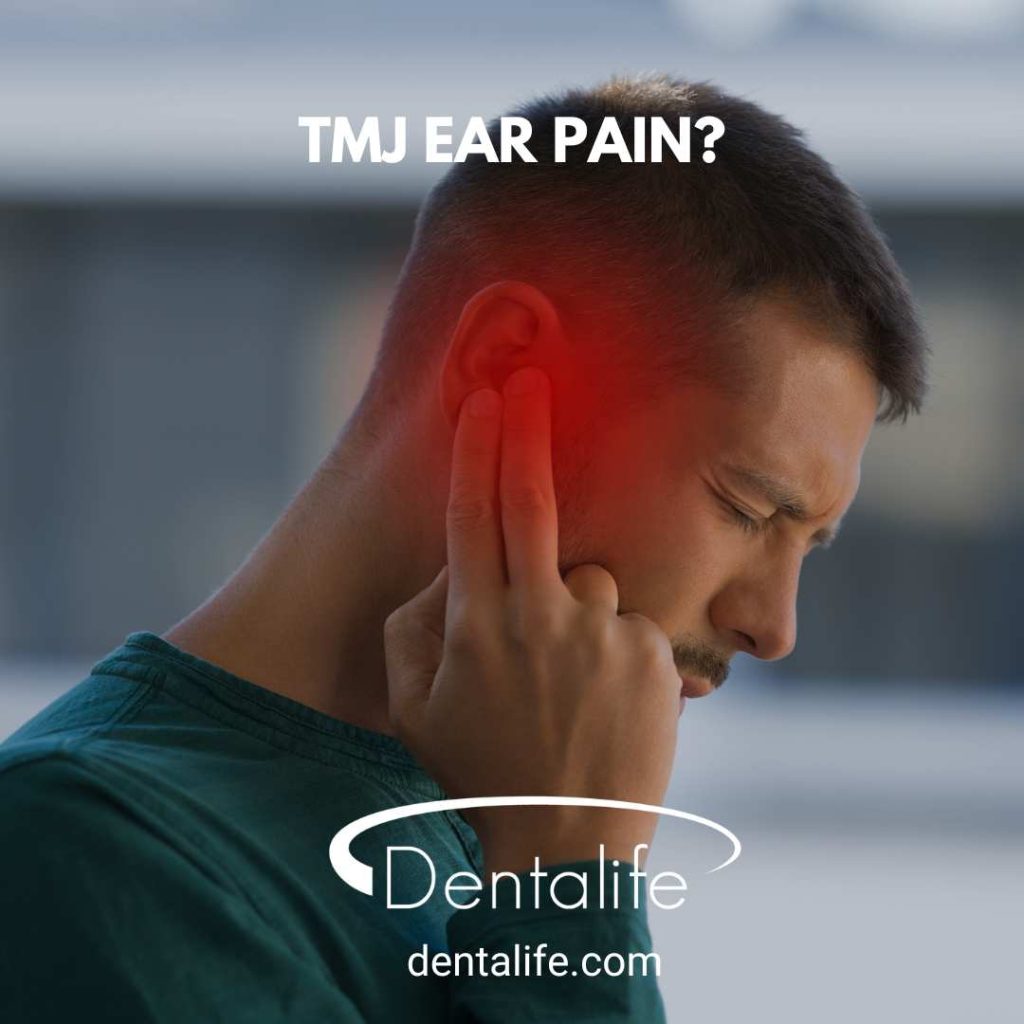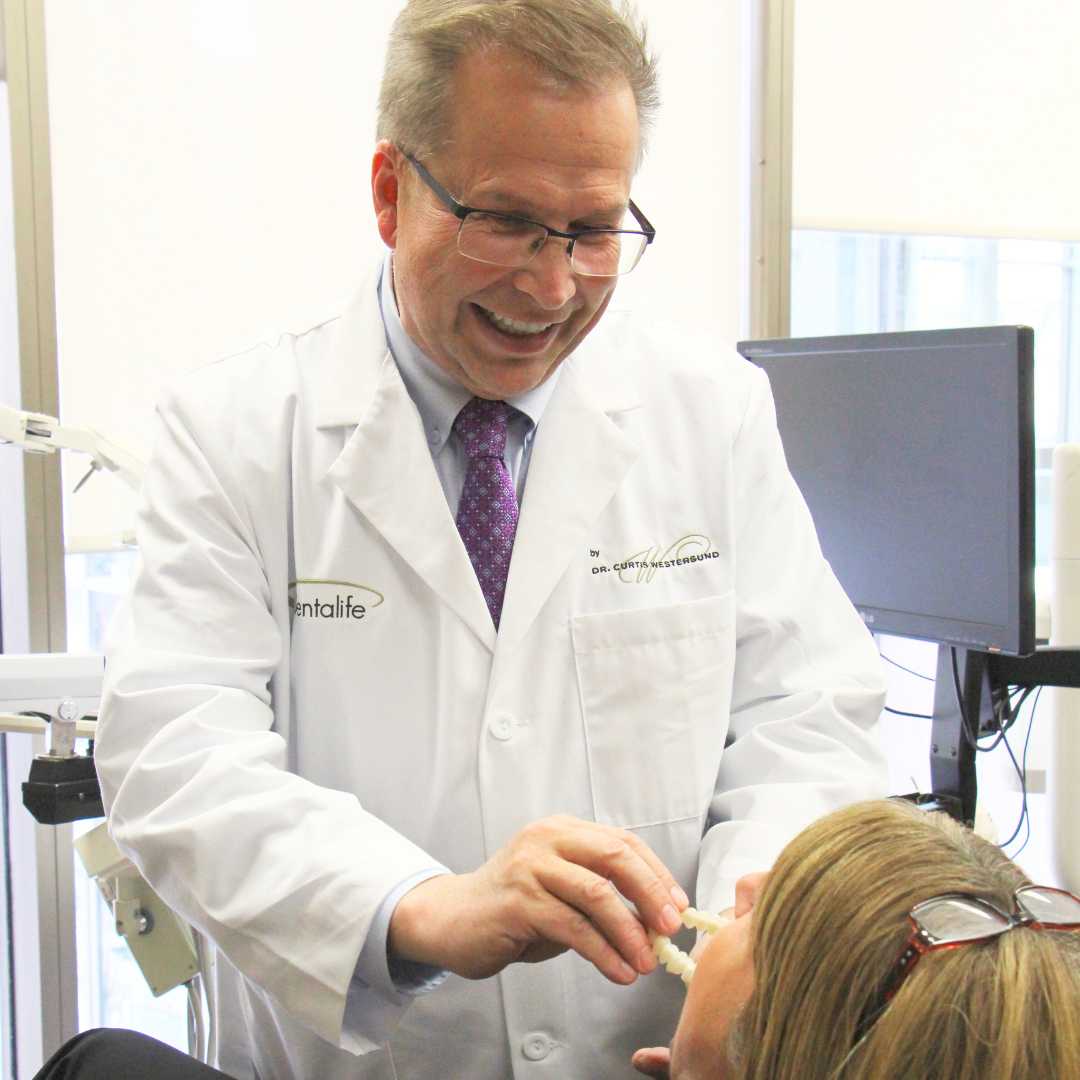TMJ disorder is often associated with jaw pain, but one of the most overlooked and frustrating symptoms is ear pain. Many people don’t realize that their ear discomfort could be directly linked to an issue with their jaw. This connection between the temporomandibular joint (TMJ) and ear pain can lead to a variety of symptoms that affect daily life, causing ongoing discomfort and frustration. In this blog, we will explore the causes, symptoms, and impact of TMJ ear pain, and how Dr. Curtis Westersund, a TMJ dentist in Calgary, can help with his biomechanical approach to TMJ treatment.
What Causes TMJ Ear Pain?
TMJ disorder occurs when there are problems with the temporomandibular joint, which connects the lower jaw to the skull. This joint is located near the ear, which explains why TMJ issues can often result in ear pain. The proximity of these structures means that when the TMJ is misaligned or inflamed, it can affect the muscles and nerves surrounding the ear, leading to discomfort or pain.
Here are some common causes of TMJ ear pain:
- Jaw Misalignment: When the jaw is not properly aligned, it places extra stress on the TMJ. This stress can affect the surrounding muscles and nerves, leading to ear pain.
- Teeth Grinding (Bruxism): Grinding or clenching your teeth can wear down the TMJ, causing inflammation and discomfort that radiates to the ear.
- Arthritis: Osteoarthritis or rheumatoid arthritis in the TMJ can cause damage to the joint, which can result in ear pain.
- Injury: Trauma or injury to the jaw or face can cause the TMJ to become misaligned or damaged, leading to ear pain.
- Excessive Chewing or Jaw Movements: Overuse of the jaw muscles from habits like chewing gum can put strain on the TMJ, potentially leading to pain in the ear.
Symptoms of TMJ Ear Pain
TMJ ear pain is not always straightforward to diagnose because the pain may feel like it’s coming from the ear itself. However, it is essential to identify the signs that indicate TMJ as the root cause of your ear discomfort. Here is a list of symptoms commonly associated with TMJ ear pain:
- Persistent Earache: Pain in or around the ear that isn’t related to an ear infection.
- Tinnitus (Ringing in the Ear): Many TMJ disorder patients report a constant ringing or buzzing in their ears.
- Fullness or Pressure in the Ear: A feeling of pressure or fullness in the ear, similar to what you feel when you’re on an airplane.
- Jaw Pain or Stiffness: Pain or tightness in the jaw muscles, especially when chewing or talking.
- Clicking or Popping Sounds: Audible sounds when opening or closing the mouth, which can sometimes be felt in the ear.
- Headaches or Migraines: TMJ disorder often causes headaches, and ear pain can sometimes be an accompanying symptom.
- Difficulty Chewing: Pain or discomfort when chewing food due to TMJ issues, which can also exacerbate ear pain.
- Neck and Shoulder Pain: Pain radiating from the jaw to the neck and shoulders is a common symptom, often accompanied by ear pain.
How TMJ Ear Pain Can Negatively Affect Your Life
TMJ ear pain is more than just a nuisance—it can severely impact your quality of life. Here’s how TMJ ear pain can negatively affect various aspects of daily life:
- Sleep Disruption: Ear pain can make it difficult to find a comfortable sleeping position. This, combined with other TMJ symptoms like teeth grinding, often leads to poor sleep quality or insomnia.
- Concentration Problems: Persistent ear pain, especially when accompanied by headaches or ringing in the ears, can make it challenging to concentrate at work or during everyday tasks.
- Social Interaction: Chronic pain, including ear pain, can make social interactions uncomfortable or painful, especially when talking or eating.
- Emotional Well-being: Chronic pain from TMJ ear pain can lead to anxiety, irritability, or even depression. Constant discomfort makes it harder to enjoy life and can take a toll on your mental health.
- Difficulty Eating: Pain in the jaw and ear can make it hard to chew food, leading some patients to avoid eating certain foods or develop nutritional deficiencies.
- Fatigue: The ongoing battle with pain and discomfort wears people down, leaving them feeling exhausted even after minimal effort.
TMJ Ear Pain Relief in Calgary
The good news is that relief is possible for those suffering from TMJ ear pain in Calgary. Dr. Curtis Westersund, a TMJ dentist in Calgary, specializes in treating TMJ disorders using a biomechanical approach. With over 30 years of experience and hundreds of successfully treated patients, Dr. Westersund understands the intricate relationship between the jaw, ear, and overall body mechanics.
By carefully assessing your bite alignment and jaw function, Dr. Westersund can develop a customized TMJ treatment plan designed to alleviate pain and restore proper jaw function. His biomechanical approach focuses on addressing the root cause of TMJ dysfunction rather than just masking the symptoms. This ensures that the treatment is long-lasting and effective in reducing ear pain and other related symptoms.
Finding the Right TMJ Treatment in Calgary
If you’re suffering from persistent ear pain and suspect it may be related to TMJ disorder, it’s crucial to seek professional help. Dr. Curtis Westersund’s experience in treating TMJ disorder through biomechanical principles has helped many patients find lasting relief. Don’t let TMJ ear pain disrupt your life any longer—take the first step toward a pain-free life by consulting with a skilled TMJ dentist in Calgary.
To learn more about how Dr. Westersund can help with TMJ ear pain in Calgary, or to schedule a consultation, contact his TMJ Disorder clinic today. Your path to relief begins with expert care and a personalized treatment plan.




